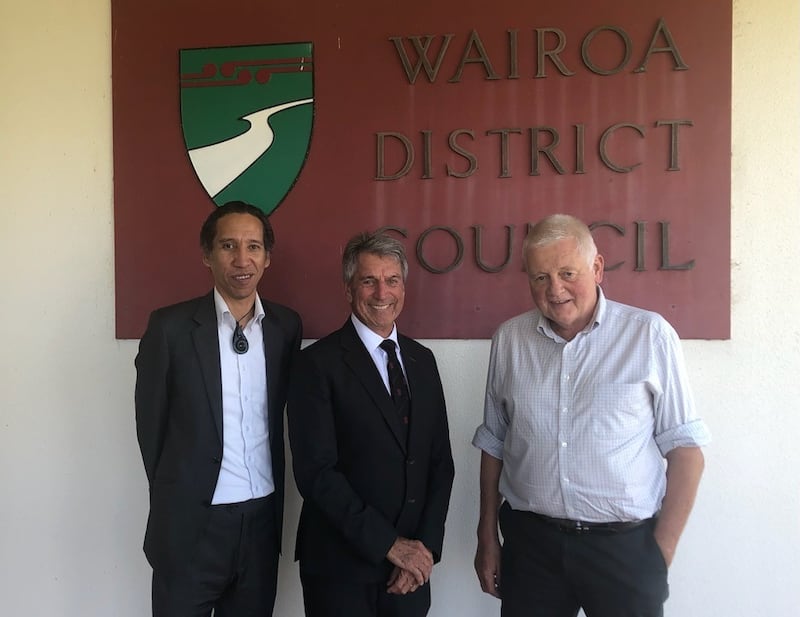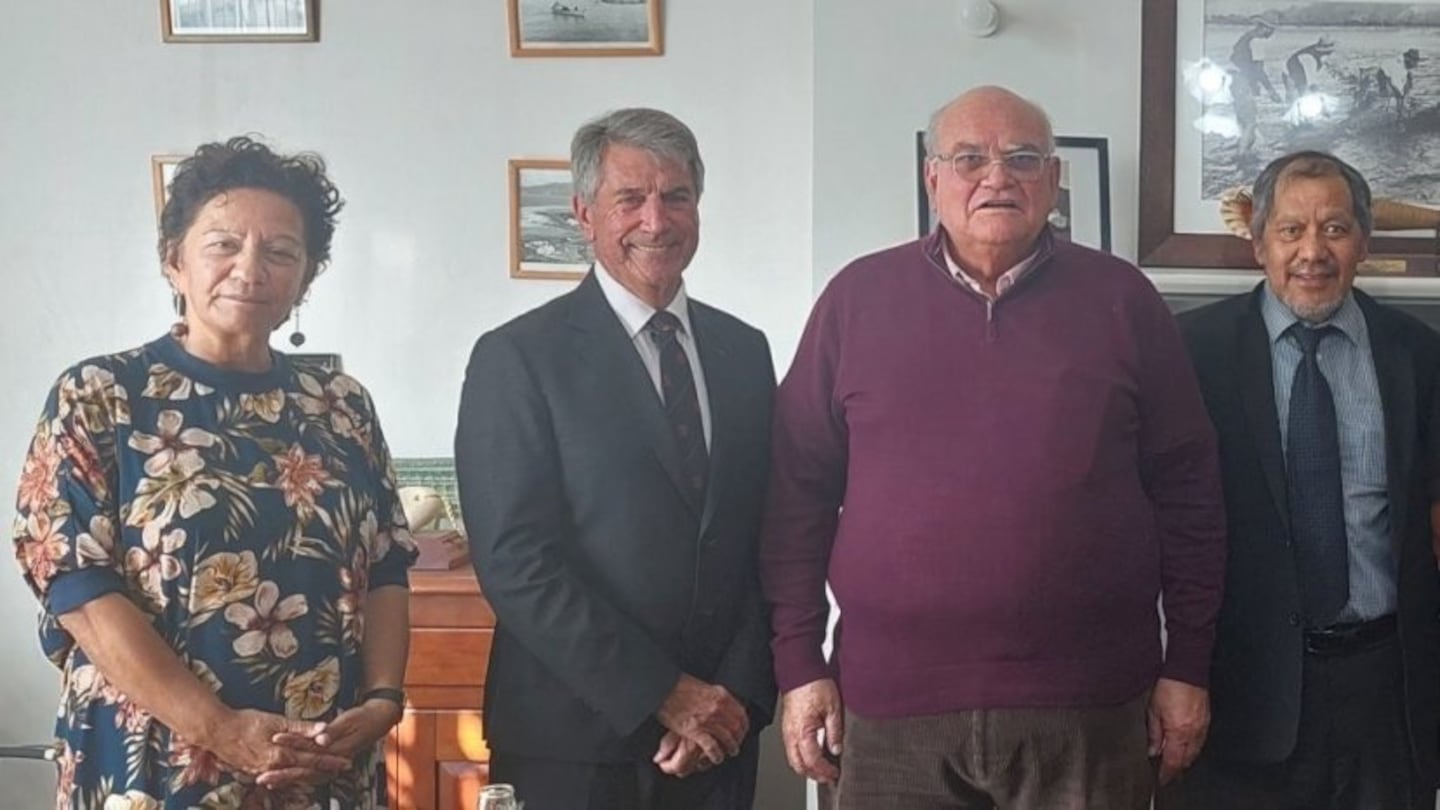Chief Ombudsman Peter Boshier with Amohaere Houkamau, director Rau Tipu Rau Ora (Tairāwhiti Regional Leadership Group), Selwyn Parata, chairman, Te Runanganui o Ngāti Porou, and George Konia, kaumātua, Ombudsman NZ. Photo / Facebook
After meeting kanohi ki te kanohi or face-to-face with iwi and community leaders in Tairāwhiti and Hawke’s Bay, the man who can investigate whether whānau are being treated "fairly and with honour" by central and local government in the aftermath of Cyclone Gabrielle is turning his attention to Tāmaki Makaurau.
Chief Ombudsman Peter Boshier is this week visiting the country's largest city, as he continues a series of targeted engagements in some of the regions hardest hit by recent extreme weather events. Among those he will meet with in Auckland is Ngāti Whātua.
In Tairāwhiti, Boshier met with Te Runanganui o Ngāti Porou and other Māori leaders, while he also travelled to Kahungunu to visit with whānau in Wairoa.

Wairoa District Council CEO Kitea Tipuna, Chief Ombudsman Peter Boshier and Wairoa Mayor Craig Little. Photo / Facebook
"My team and I benefited enormously from the face-to-face interactions we had with people in Gisborne, Wairoa, Napier and Hastings. We met with a wide range of community leaders, iwi leaders, local mayors and chief executives of councils," Boshier said on Wednesday.
"Rather than working in Wellington, we made the decision to go out to communities to talk about our work and to see things first hand - kanohi ki te kanohi. What I’ve seen and heard has given me a really good basis for the future."
In early April, as he set out on his haerenga or journey, Boshier outlined the purpose of the visits and his primary role.
“In any natural disaster, both central and local government need to make a series of rapid decisions to respond to the immediate crisis and to help communities recover.
“As communities move from the immediate emergency response to the recovery phase, people are likely to have questions about these actions and decisions.
“My primary role is to investigate complaints about the actions and decisions made by central and local government agencies that affect people in New Zealand, to ensure they are being treated fairly and with honour. I know from past experience that the number of complaints my office receives goes up in the months after civil defence emergencies,” Boshier said at the time.
The Chief Ombudsman also made a point then of emphasising that the concerns of iwi are especially of interest to his office.
“I am particularly keen to meet with iwi leaders next week because of the importance of Te Tiriti o Waitangi in the work that I do.”
It comes as no surprise then that Ngāti Whātua are key among his Auckland hui.
"I am now speaking face-to-face with Auckland civic leaders and iwi and community organisations so I can understand the issues and concerns facing them as well."
As well as Ngāti Whātua, Boshier will meet with Auckland Council chief executive Jim Stabback, disability rights organisations and various community agencies including community law.
"As well as offering advice and guidance on how to make good decisions that affect people, my team and I are looking forward to learning about the issues and challenges following the recent floods. This will inform my office’s strategic planning and prioritising.
"The programme will also help us get ahead of an anticipated spike in complaints. It will assist in our engagement with people who may need my 7office by making them aware of what the Ombudsman can and can’t help them with.
"Some issues are outside of my jurisdiction and there are certain situations where I don’t have the power to investigate a particular agency. I’ll be in a good place to explain that once I have more detail."
Boshier plans to continue his engagement in Coromandel and Northland in the coming months.



